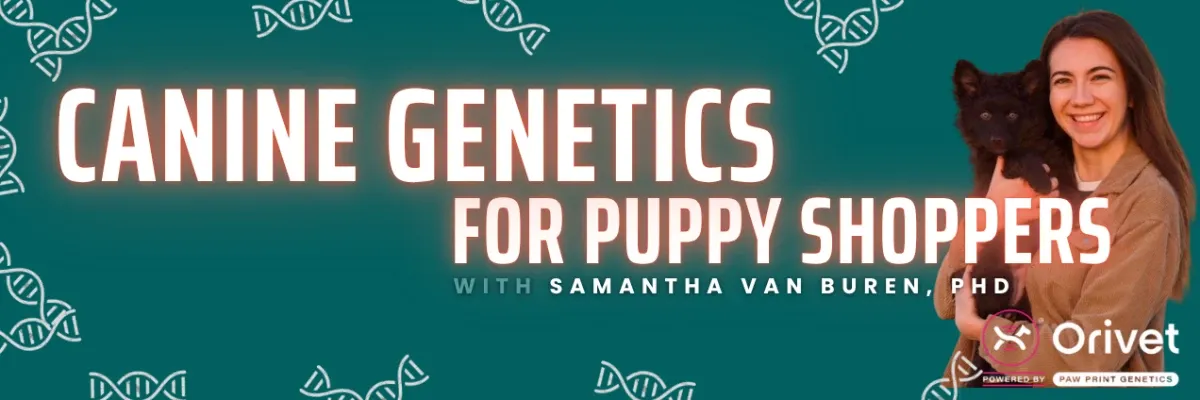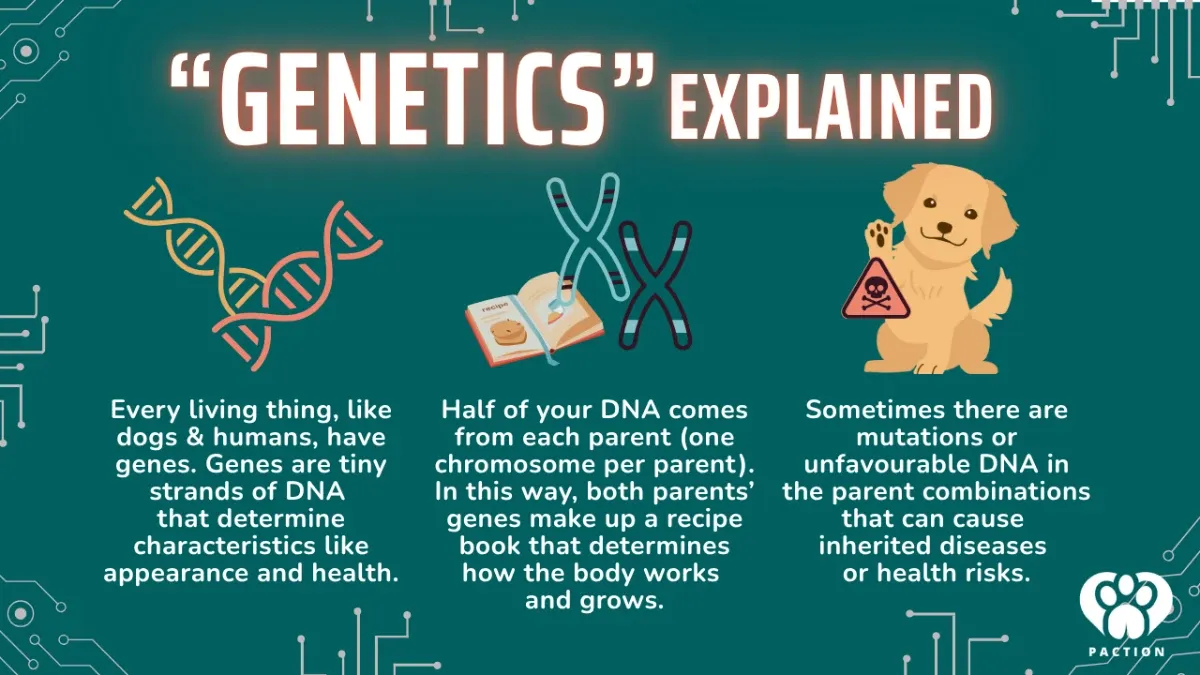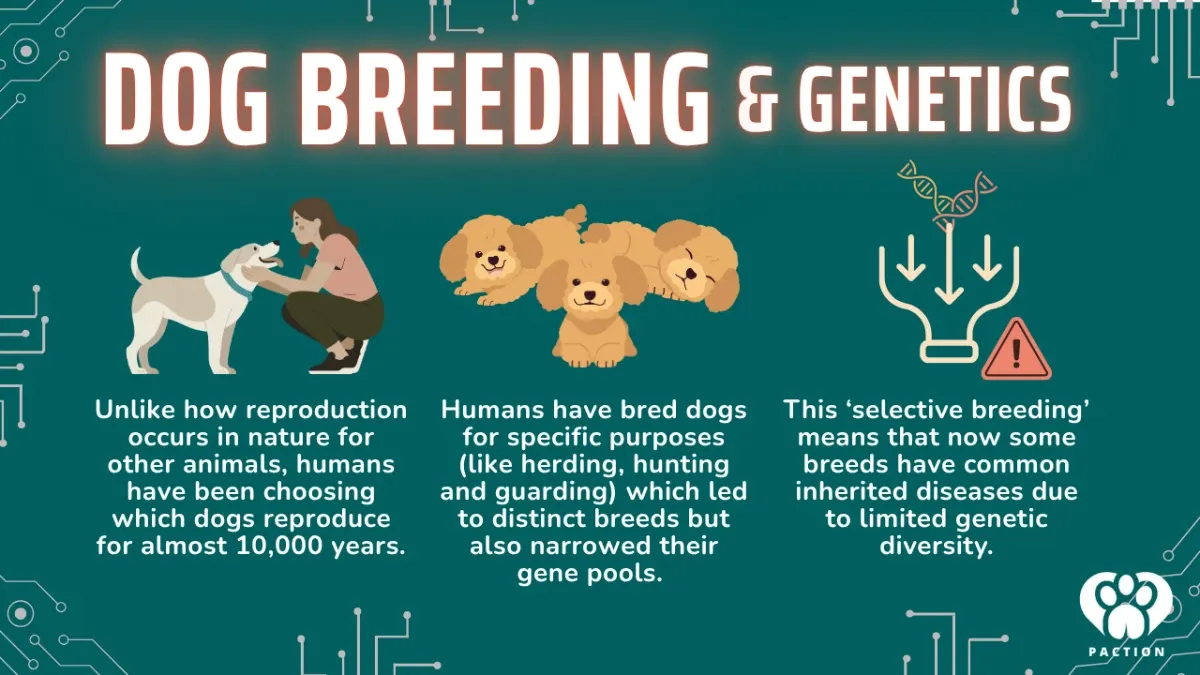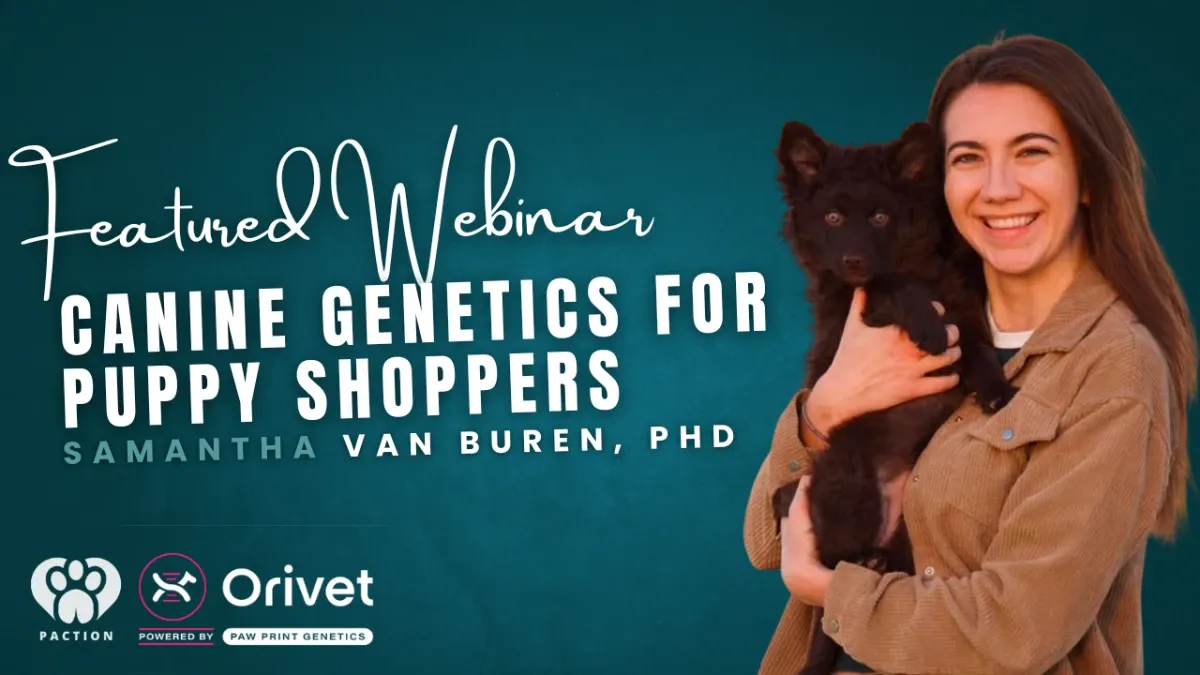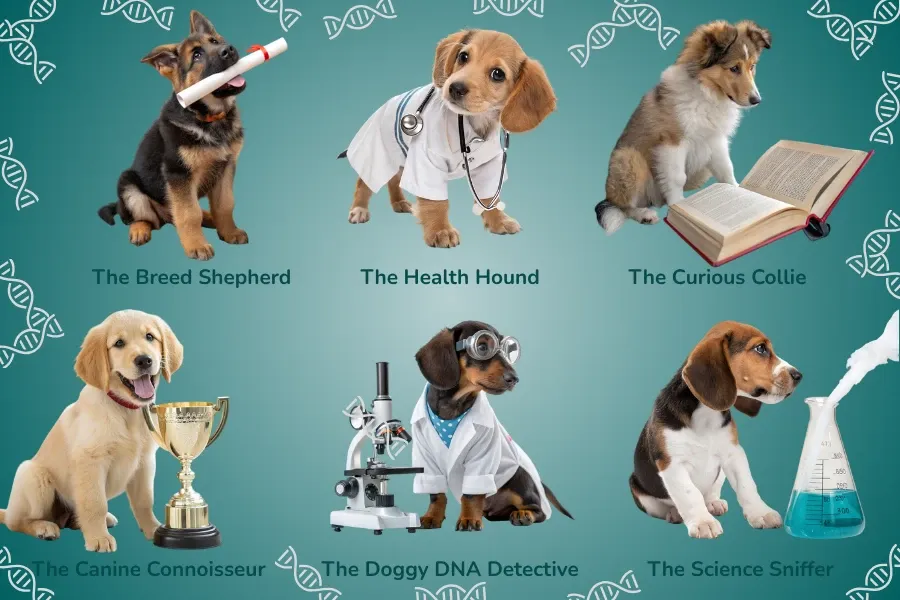
Canine Genetics for Puppy Shoppers
🧬🐾Making Science Simple🐾🧬
Supporting the Most Responsible Puppy Shoppers: Take the Mini Course on Canine Genetics
If you're adding a dog to your family, you're already making one of the most important decisions of your life. So why not make it an informed one?
Most puppy shoppers focus on cuteness, coat colour, size or romanticising their favourite breed…But, the most responsible dog owners look behind the scenes to understand the science that protects their dog's long-term health.
In less than 20 minutes, you'll understand the basics that every dog owner should know before choosing a reputable breeder for your new family member.
